Plot
The professors of the Institute of Child Psychology raise a foundling baby, whom they name "Alpha", as an experiment to see if a scientific upbringing can create a genius. By the time she is six years old, Alpha can speak Chinese, play chess and the harp, and has studied algebra and the campaigns of Napoleon, among other things.
Newspaper reporter Mike Regan is assigned, over his protests, to write an article about her. He manages to secure an interview, despite the reluctance of the professors, and discovers that Alpha, while raised with loving care, has missed out on the joys of childhood. Disturbed by Mike's claim that magic is real, Alpha decides to investigate further and sneaks out to see Mike, leaving the confines of the institute for the first time in her life.
She enjoys the sights and sounds of New York as she makes her way to the offices of the newspaper. Mike is less than pleased to see her, but takes her along so he can keep a date with his girlfriend, nightclub singer Katie Mallory (Marsha Hunt). Alpha takes an instant dislike to Katie; it turns out that the child has a crush on Mike. However, Katie's kindness and understanding soon win Alpha over.
An outbreak of measles at the Institute and the resulting quarantine force Mike to look after Alpha for a few days. That night, escaped convicted murderer Packy Roost (Keenan Wynn) shows up at Mike's apartment. While waiting for the reporter, he and Alpha become friends. When Mike does come back, Packy demands he find Lefty Moran, who can clear him of the crime. The reporter reluctantly agrees, eventually bringing in Lefty. It turns out that Lefty is the killer; the police take him away, and Packy is exonerated.
When the professors come to reclaim their test subject, she does not want to leave Mike. However, he is unwilling to accept the responsibility and does not put up a fight for her. When Mike proposes marriage to Katie, she turns him down, citing his irresponsibility. Guilt-ridden, he gets a job transfer to Washington, DC. Meanwhile, a despondent Alpha refuses to eat or sleep. Mike has a change of heart and is reunited with both Alpha and Katie. The three leave the institute hand in hand.

Angela Maxine O'Brien is an American actress. Beginning a prolific career in feature films for Metro-Goldwyn-Mayer at age four, O'Brien became one of the most popular child stars in cinema history and was honored with a Juvenile Academy Award as the outstanding child actress of 1944. In her later career, she has appeared on television, on stage, and in supporting film roles.
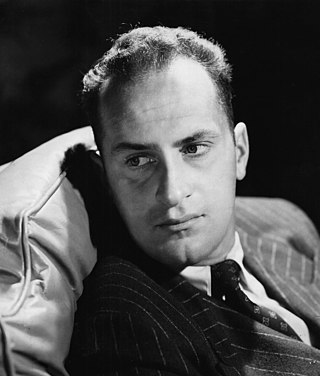
Francis Xavier Aloysius James Jeremiah Keenan Wynn was an American character actor. His expressive face was his stock-in-trade; and though he rarely carried the lead role, he had prominent billing in most of his film and television roles.

Charles Van Dell Johnson was an American film, television, theatre and radio actor. He was a major star at Metro-Goldwyn-Mayer during and after World War II.

Ziegfeld Follies is a 1945 American musical comedy film released by Metro-Goldwyn-Mayer, primarily directed by Vincente Minnelli, with segments directed by Lemuel Ayers, Roy Del Ruth, Robert Lewis, and George Sidney, the film's original director before Minnelli took over. Other directors that are claimed to have made uncredited contributions to the film are Merrill Pye, Norman Taurog, and Charles Walters. It stars many MGM leading talents, including Fred Astaire, Lucille Ball, Lucille Bremer, Fanny Brice, Judy Garland, Kathryn Grayson, Lena Horne, Gene Kelly, James Melton, Victor Moore, William Powell, Red Skelton, and Esther Williams.
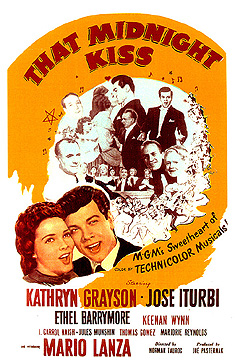
That Midnight Kiss is a 1949 Technicolor American musical romance film also starring Mario Lanza and Kathryn Grayson. Among the supporting cast were Ethel Barrymore, conductor/pianist Jose Iturbi, Keenan Wynn, J. Carrol Naish, and Jules Munshin. The commercially popular film was directed by Norman Taurog, who the following year would again direct Lanza and Grayson in the even more successful The Toast of New Orleans.
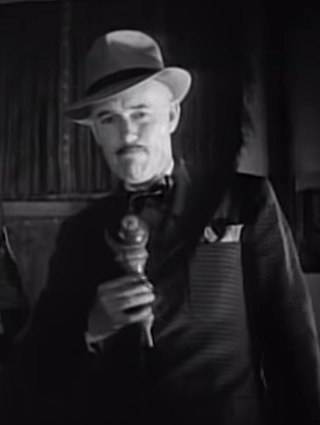
Charles D. Brown was an American stage and film actor.

The Fuzzy Pink Nightgown is a 1957 American romantic comedy film made by Russ-Field Productions and released by United Artists. It was directed by Norman Taurog from a screenplay by Richard Alan Simmons, based on a novel of the same name by Sylvia Tate and the jazzy music was composed and conducted by Billy May.

Somewhere I'll Find You is a 1942 film directed by Wesley Ruggles and starring Clark Gable and Lana Turner, released by Metro-Goldwyn Mayer. The film took almost two years to complete and was the last film Gable starred in before he enlisted in the United States Army Air Forces for World War II. His next film was the post-war Adventure (1945).

Journey for Margaret is a 1942 American drama film set in London in World War II. It stars Robert Young and Laraine Day as a couple who have to deal with the loss of their unborn child due to a bombing raid. It is an adaptation of the book of the same name in which William Lindsay White and his wife described their experiences adopting an orphan in London. This is reflected in the introduction to the film, which begins: “The Margaret of this story is real... “ This was the final film of the prolific director W. S. Van Dyke.

Promise Her Anything is a 1965 British-American romantic comedy film directed by Arthur Hiller and starring Warren Beatty and Leslie Caron. The screenplay by William Peter Blatty is based on a story by Arne Sultan and Marvin Worth. The supporting cast features Bob Cummings, Keenan Wynn, Hermione Gingold and Lionel Stander.

Kind Lady is a 1951 American film noir crime film directed by John Sturges. It stars Ethel Barrymore, Maurice Evans, Keenan Wynn and Angela Lansbury.

Easy to Wed is a 1946 Technicolor American musical comedy film directed by Edward Buzzell, and starring Van Johnson, Esther Williams, Lucille Ball, and Keenan Wynn. The screenplay by Dorothy Kingsley is an adaptation of the screenplay of the 1936 film Libeled Lady by Maurine Dallas Watkins, Howard Emmett Rogers, and George Oppenheimer.

Music for Millions is a 1944 musical comedy film directed by Henry Koster and starring Margaret O'Brien, José Iturbi, Jimmy Durante, June Allyson, Marsha Hunt, Hugh Herbert, Harry Davenport, and Marie Wilson. It was nominated for an Oscar for Best Original Screenplay in 1946.

Du Barry Was a Lady is a 1943 American musical comedy film directed by Roy Del Ruth, starring Red Skelton, Lucille Ball, Gene Kelly, and Tommy Dorsey and His Orchestra. It is based on the 1939 stage musical of the same name. Shot in Technicolor, the film was produced and distributed by Metro-Goldwyn-Mayer.
Dr. Gail Saltz is an American psychiatrist, psychoanalyst, columnist, and television commentator. Saltz is the author of several self-help and psychology books, including Anatomy of a Secret Life: The Psychology of Living a Lie (2006) and The Power of Different: The Link Between Disorder and Genius (2017).
No Leave, No Love is a 1946 American musical comedy film directed by Charles Martin and starring Van Johnson, Keenan Wynn and Pat Kirkwood.

Bachelorette is a 2012 American comedy film written and directed by Leslye Headland, adapted from her play of the same name. It stars Kirsten Dunst, Lizzy Caplan and Isla Fisher as three troubled women who reunite for the wedding of a friend who was ridiculed in high school. The play which the film is based upon was originally written as one of Headland's cycle of "Seven Deadly Sins" plays.
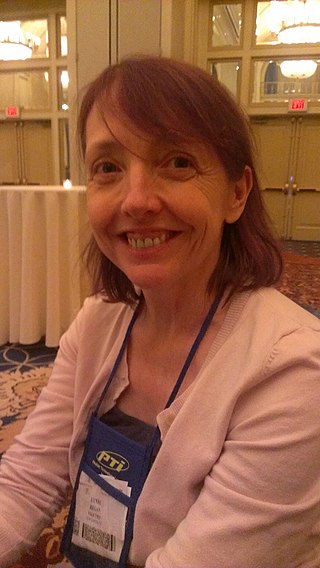
Lynne Regan is a Professor of Biochemistry and Biotechnology at the School of Biological Sciences at the University of Edinburgh. Previously, she was a Professor of Molecular Biophysics and Biochemistry at Yale University. She was the president of the Protein Society for the 2013–2014 term and has earned many awards throughout her career. Her research mainly concerns interactions between proteins and nucleic acids.
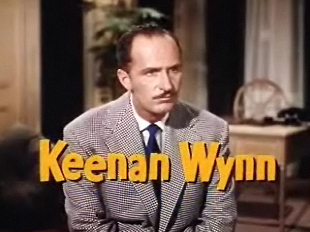
Tennessee Champ is a 1954 American drama film with strong Christian overtones directed by Fred M. Wilcox and starring Shelley Winters, Keenan Wynn, Dewey Martin, and Charles Bronson

The Chorus Lady is a 1924 American silent drama film directed by Ralph Ince and starring Margaret Livingston, Alan Roscoe, and Virginia Lee Corbin. It is based on the play of the same name by James Forbes, which was previously filmed in 1915 as The Chorus Lady.


















